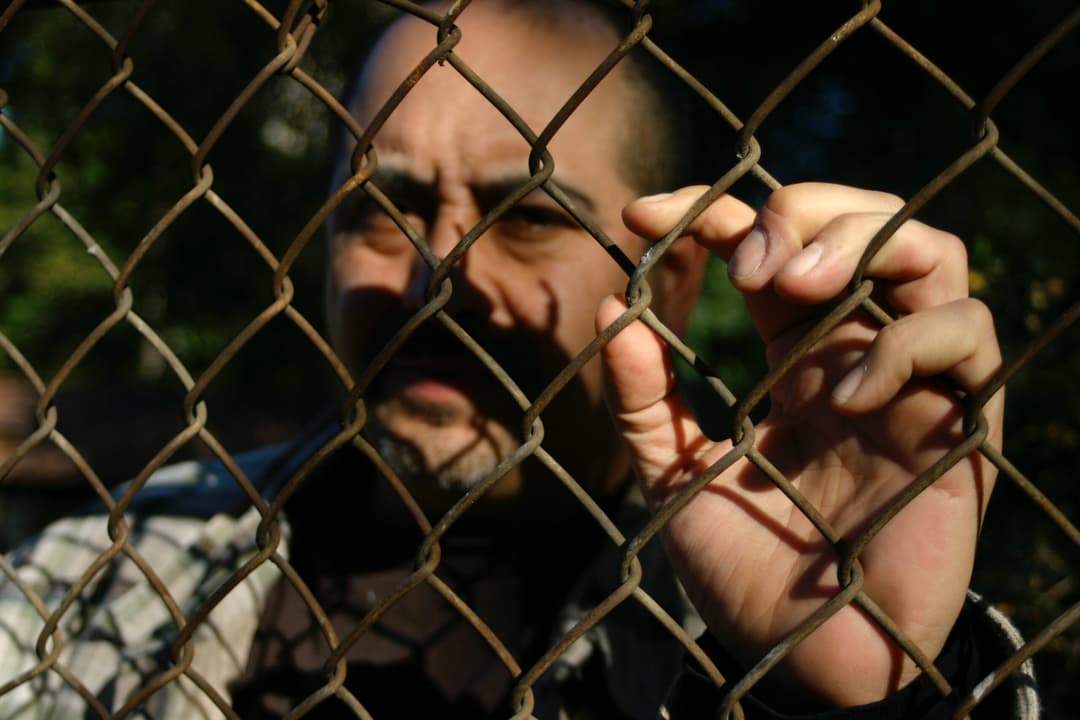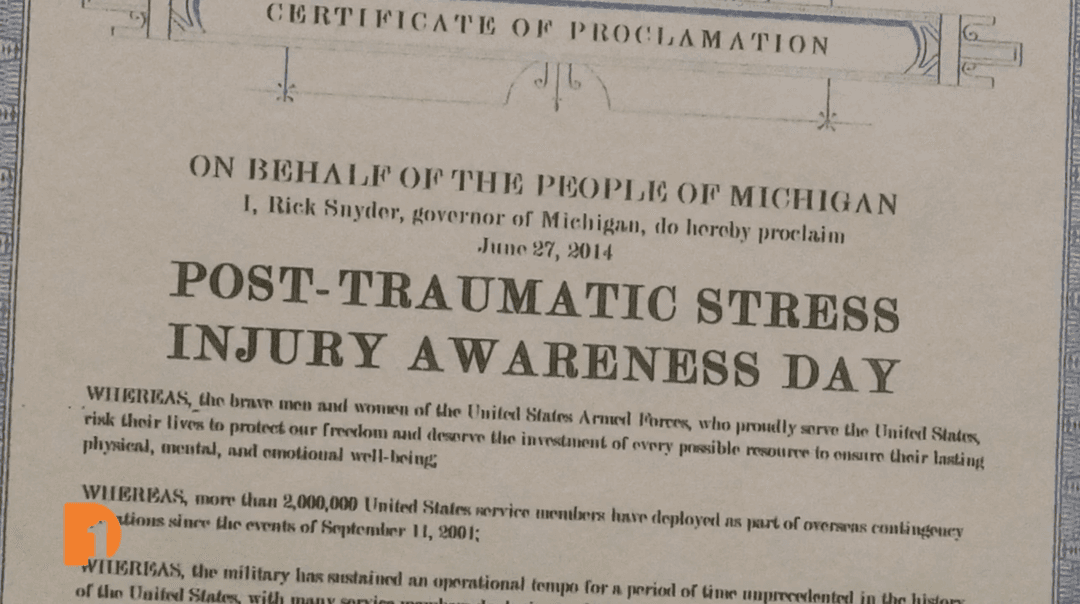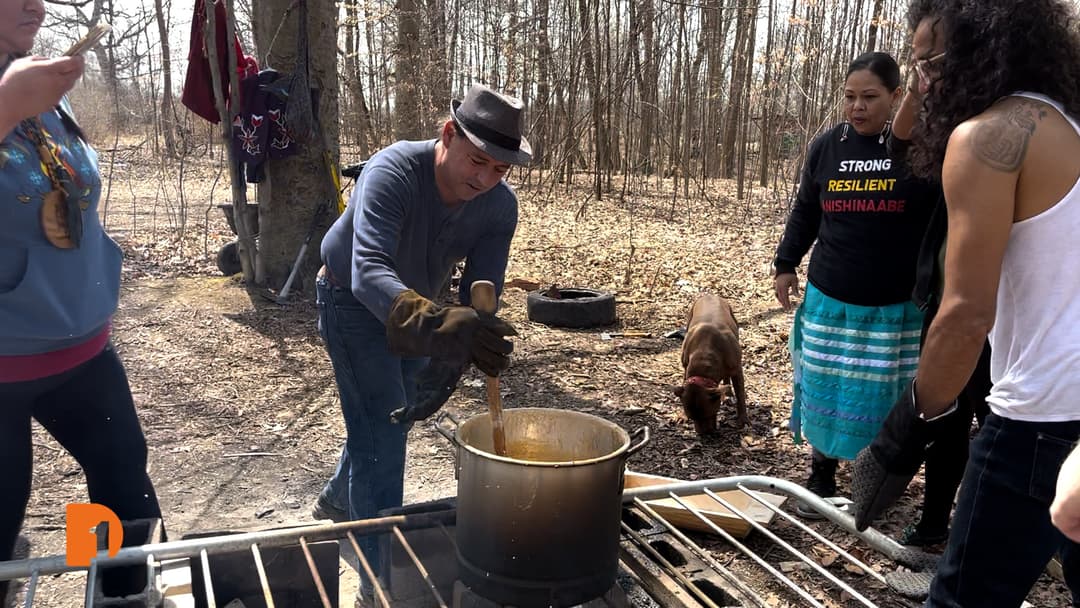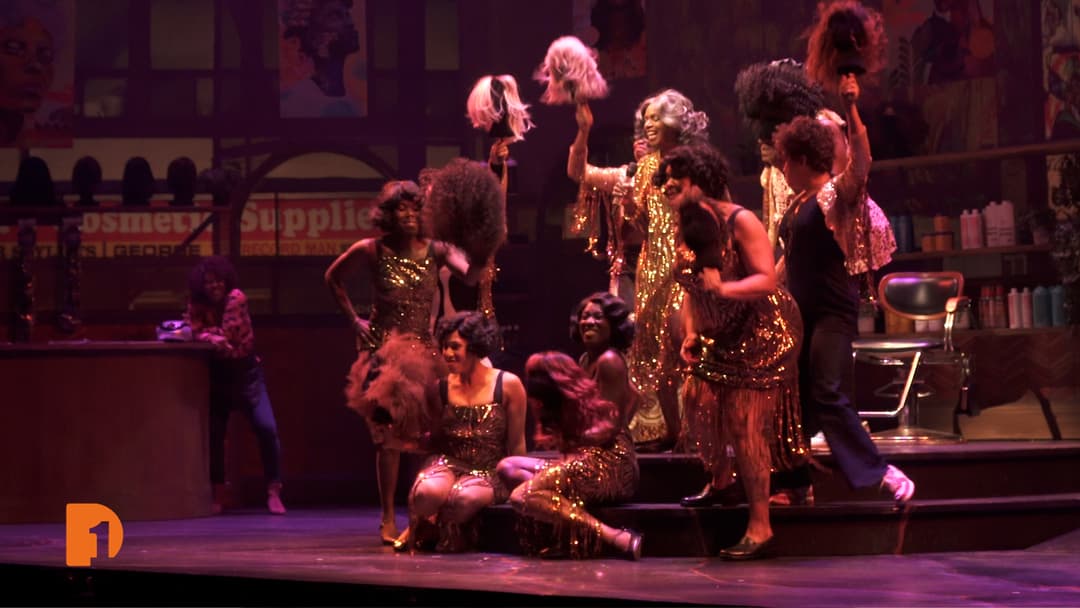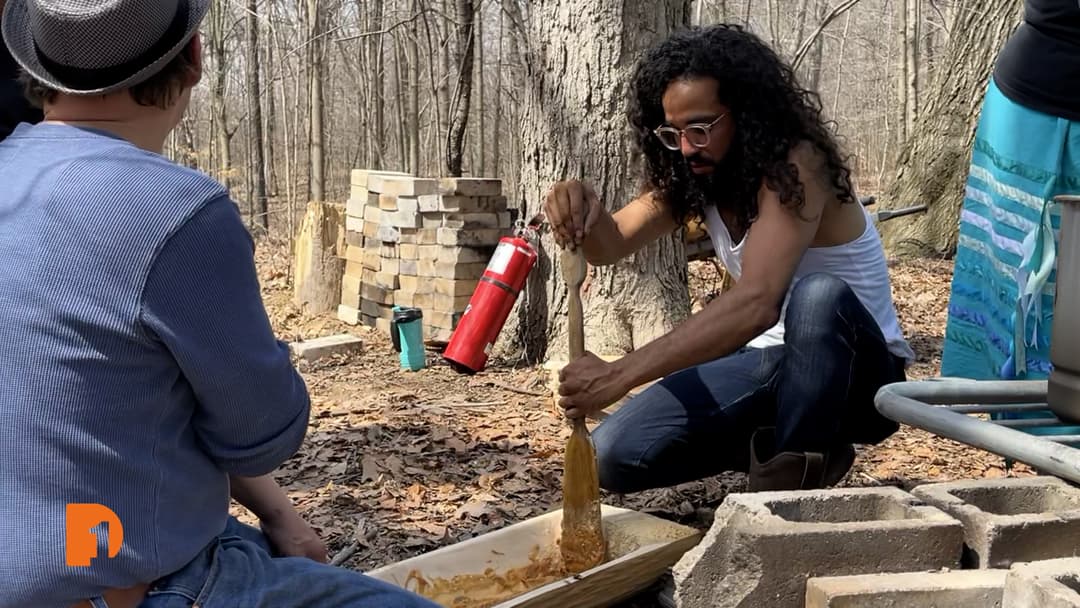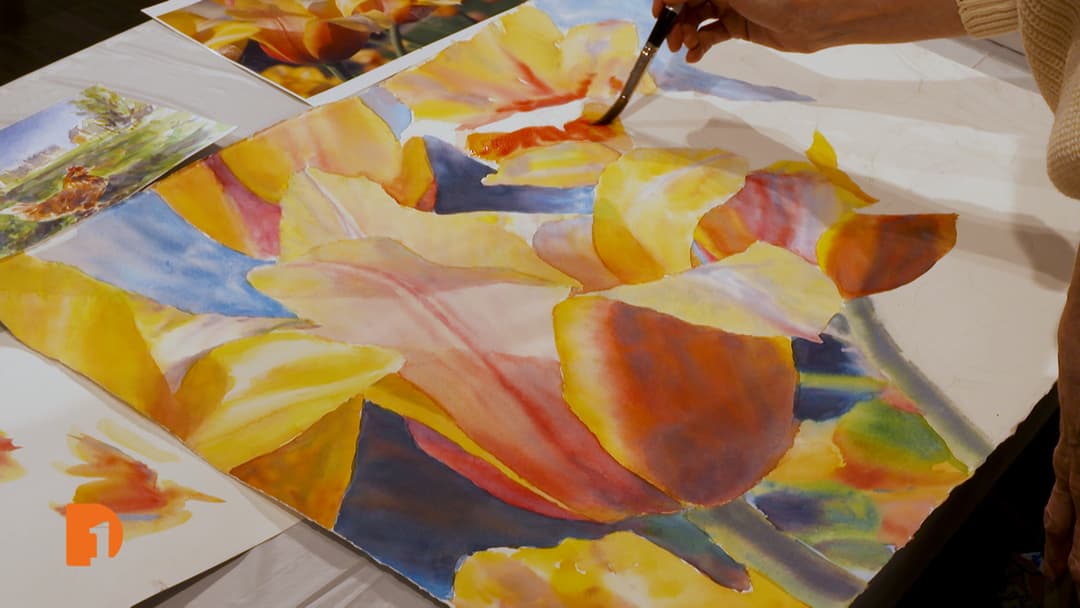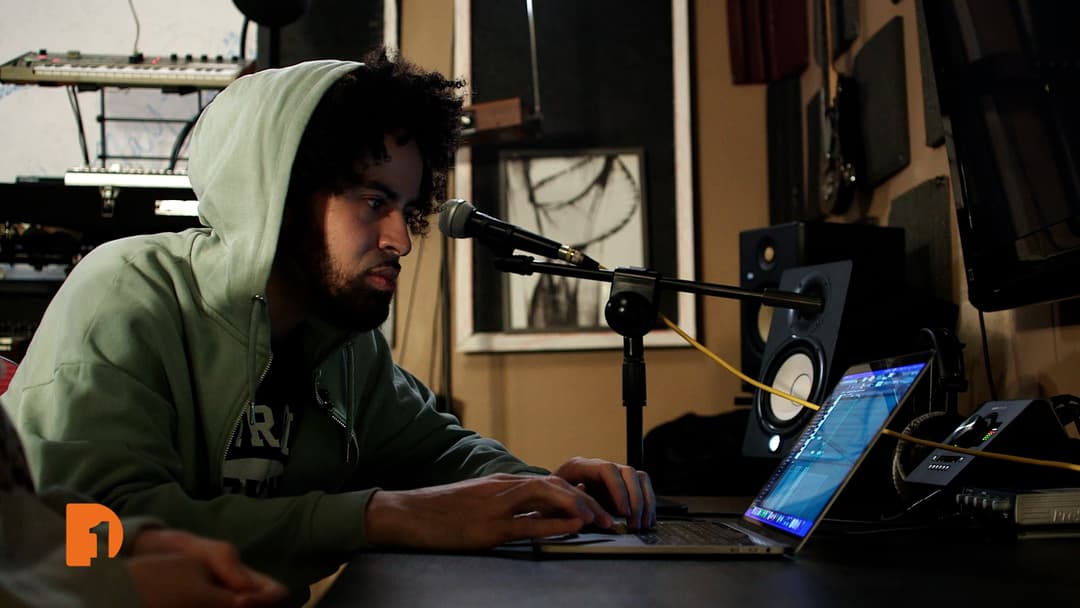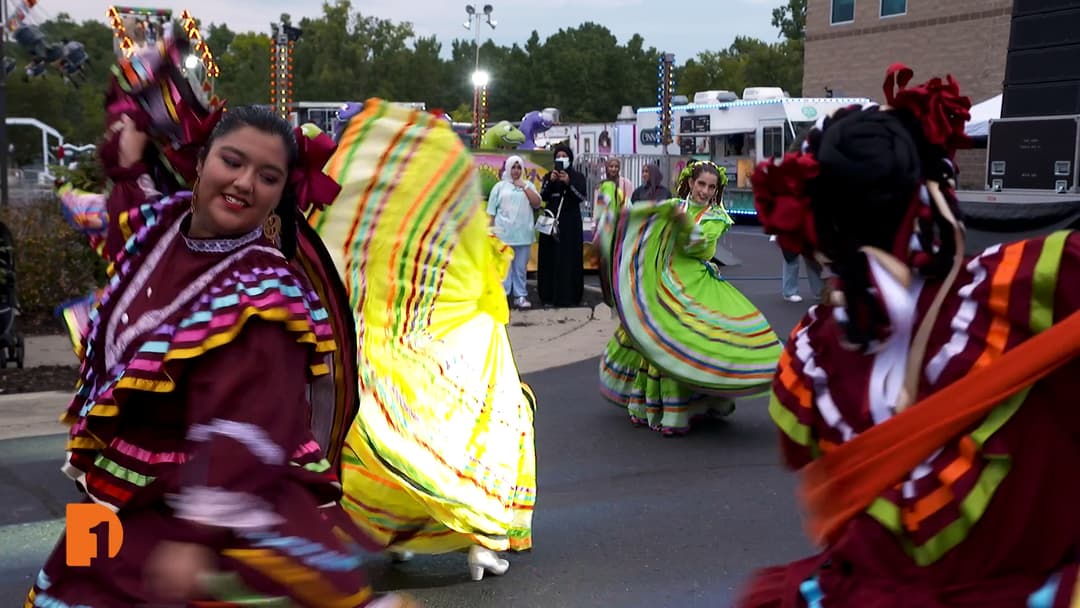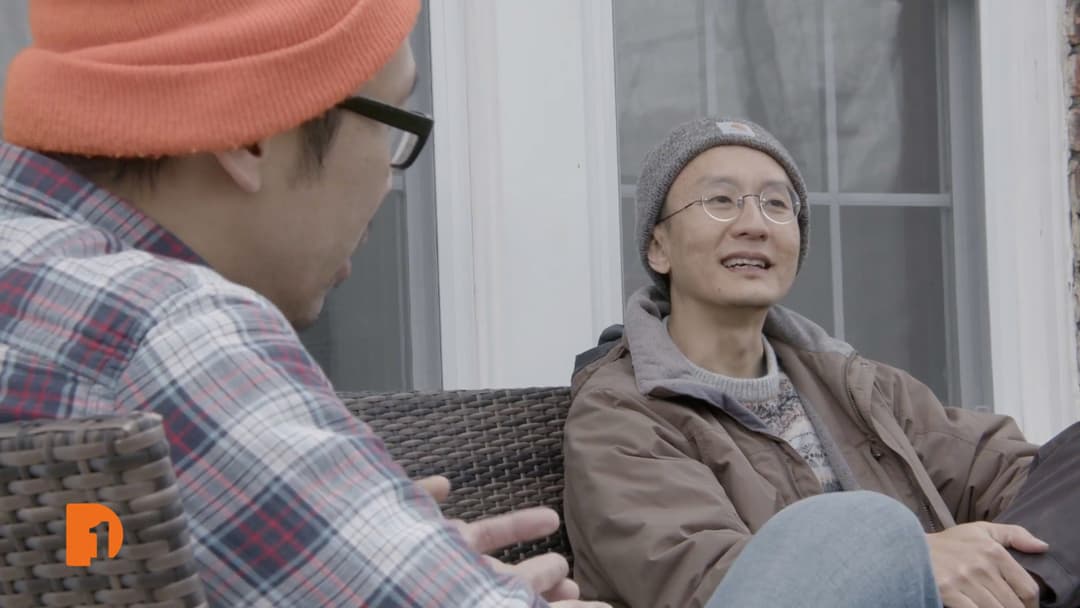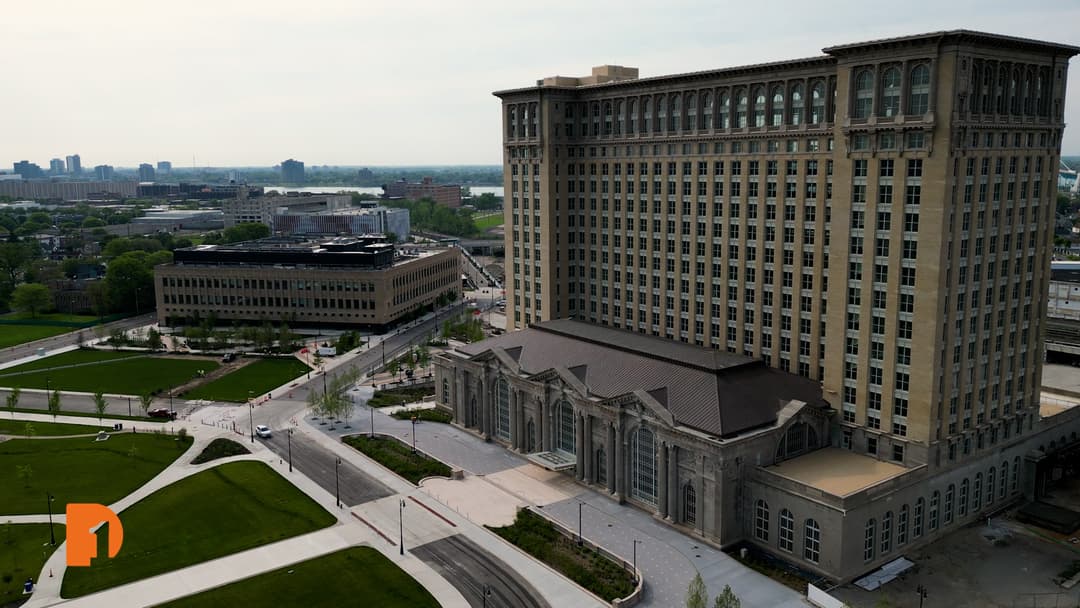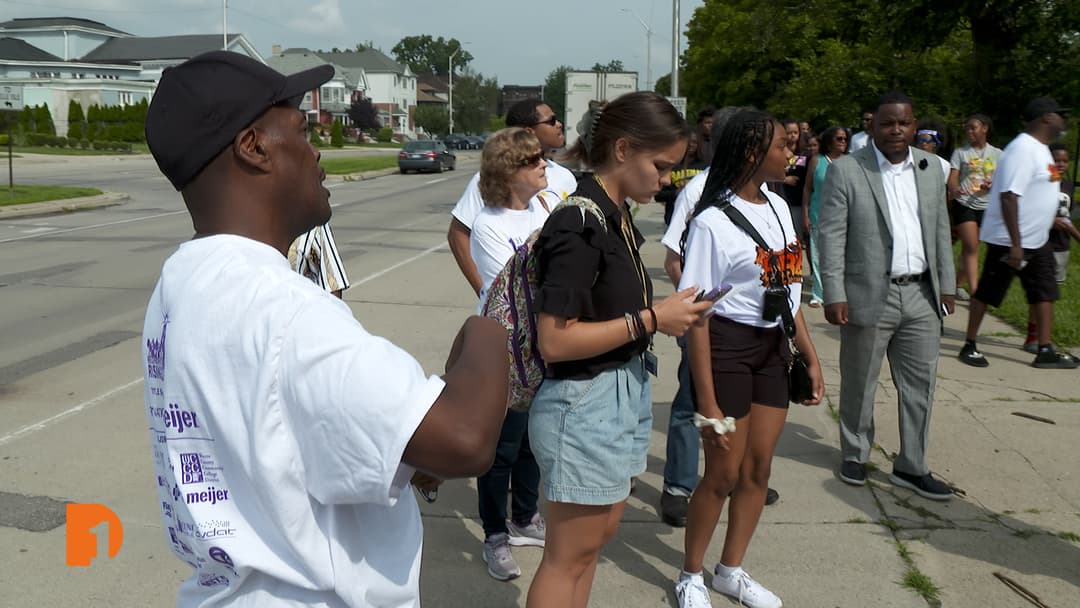Tapping into their roots: Detroit Sugarbush Project collects sap from Rouge Park
Apr 25, 2022
Late February and early March are known as sugarbush season, a time when the sap begins to run through maple trees, and for members of the Detroit Sugarbush Project, it’s the time they head out to Detroit’s Rouge Park to tap into the park’s maple trees and start collecting sap. The practice is a cultural tradition meant to connect Indigenous people to their heritage and ancestors as much as it is a spiritual process that reminds them of their connection to the Earth.
One Detroit contributor AJ Walker joins the Detroit Sugarbush Project members — David Pitawanakwat, Dr. Shakara Tyler and Alexis Chingman-Tijerina — for a day in Rouge Park collecting sap to learn more about the process of making maple syrup and how the group has been trying to revive the cultural tradition. Plus, Antonio Cosme, of the National Wildlife Federation, explains how projects like this are helping to provide a sense of healing for communities of color.
Full Transcript:
David Pitawanakwat, Detroit Sugarbush Project: The last freeze, these trees are going to suck all that water into the tree, it’s going to go all the way to the top. And then, as soon as it gets above freezing, all of that sap is going to come back down, and that’s when all the sap is going to flow.
AJ Walker: And when it does, that’s when the Detroit Sugarbush Project will get their sweet reward. But for those hard at work tapping these maple trees, the work itself is most rewarding. Dr. Shakara Tyler says, tapping maple trees is about much more than getting sirup.
Dr. Shakara Tyler, Detroit Sugarbush Project: The Sugarbush process is a very sacred ritual where we commune with our trees as ancestors, as the kin that they are, as they gift the sap to us, so that we can consume it however that we see fit. And I want to emphasize the ritualistic part of it, because we offer gifts to the trees in the process of them returning the sap or giving the sap to us. It’s about sustaining the mind, body and spirit. It’s not just something that we consume because it tastes good. This is a very spiritual process where we can honor our sacred histories and honor the ancestral energy that’s present.
David Pitawanakwat: You can live off the land, our ancestors did it. And so, we’re just trying to keep those traditions alive.
AJ Walker: Antonio Cosme, who works for the National Wildlife Federation, is one of the Detroit Sugarbush Project’s organizers. He helps to bring the NWF together with Native American communities to carry out this annual tradition. Alexis Chingman- Tajerina, who is Anishinaabe, says hauling these buckets and doing this work is about paying homage to her culture and staying connected to her roots.
Alexis Chingman-Tajerina, Detroit Sugarbush Project: The Food Sovereignty Initiative with my tribe, you know, if we want to be living our culture, then we need to be doing what we would do in terms of like food harvesting, and gathering, and all the ceremony that goes into that, that is our culture. So, if we’re eating our foods, our heritage foods, then, you know, we are reconnecting. And that’s a really powerful way that we can do that.
AJ Walker: For Cosme, Bringing Sugarbush Tapping to Detroit is helping to heal deep wounds in communities of color. Those who are Native American and those who are not.
Antonio Cosme, Detroit Sugarbush Project: We’re really trying to build relationships between Native communities and urban communities, between black communities and native communities, because we think a lot of the things these communities are facing, they’re parallels, you know. And a lot of that comes from like the sadness, the hurt, the pain, the disconnection from our ancestral roots and nature in the land.
AJ Walker: And Detroit’s Rouge Park has proven to be the perfect place to do so.
David Pitawanakwat: Rouge Park was the most natural destination for us. We came out here, we walked a little bit out on the trails. And, I mean, these are just huge maple groves, it’s just a perfect maple tapping spot. And so, we went to the city, and we said, hey, this is a part of our heritage, our culture, our religious and spiritual like rights to do this every season, to honor the, you know, the nature, the season, ourselves, and our ancestors. And so, the city was like, wow, yeah, that’s dope. And so, we’re out here doing it now.
AJ Walker: Today the fire is the beginning of a long process.
David Pitawanakwat: The fire is kind of like the center of the community. We want to get the fire going today to keep you guys warm and keep us warm while we’re working.
AJ Walker: Next, is going tree to tree. So, this fire here is to keep us warm. And then in a little while, you’re going to build a separate fire.
David Pitawanakwat: Yeah.
AJ Walker: And that’s going to be, you know, to boil everything down.
David Pitawanakwat: Yeah. We’re going to need a lot of heat to boil down the maple sap. Like I said, it’s going to take a long time, 5 to 10 hours. Sometimes we have boils, depending on how much sap we’re going to have in any given point, can take up to 24 hours.
AJ Walker: It looks like over here is where the real work begins and you’re going to start actually tapping into those trees.
David Pitawanakwat: Right. We’ve got about 50 gallons already pulled from the tap already. It’s gotten a little bit colder, so the trees have slowed down. But we’re going to go collect right now what we’ve got out here in Rush Park, we’re going to add that to the tow. And then later this week, we’re going to be building a large cooking kit over here for the maple syrup. And my friends are going out to collect the sap right now.
AJ Walker: Tapping maple trees for their sap is a tradition that goes back thousands of years. But doing it today is especially important, and it’s a labor of love.
Dr. Shakara Tyler: Reviving these traditions are part of the reclamation process culturally, politically, socially, even economically. And so, it’s a huge aspect of what it means to decolonize the way we center indigenous and center indigenous futures and histories in the present. And so, this is not something new that we’re trying to figure out. We are pulling from a very ancient lineage of practices, and stories, and cultures, to learn in the present today.
Subscribe to One Detroit’s YouTube Channel & Don’t miss One Detroit Mondays and Thursdays at 7:30 p.m. on Detroit PBS, WTVS-Channel 56.
Catch the daily conversations on our website, Facebook, Twitter @DPTVOneDetroit, and Instagram @One.Detroit
View Past Episodes >
Watch One Detroit every Monday and Thursday at 7:30 p.m. ET on Detroit Public TV on Detroit Public TV, WTVS-Channel 56.
Stay Connected
Subscribe to One Detroit’s YouTube Channel and don’t miss One Detroit on Thursdays at 7:30 p.m. and Sundays at 9 a.m. on Detroit PBS, WTVS-Channel 56.
Catch the daily conversations on our website, Facebook, Twitter @OneDetroit_PBS, and Instagram @One.Detroit
Related Posts
Leave a Reply
Your email address will not be published. Required fields are marked*

